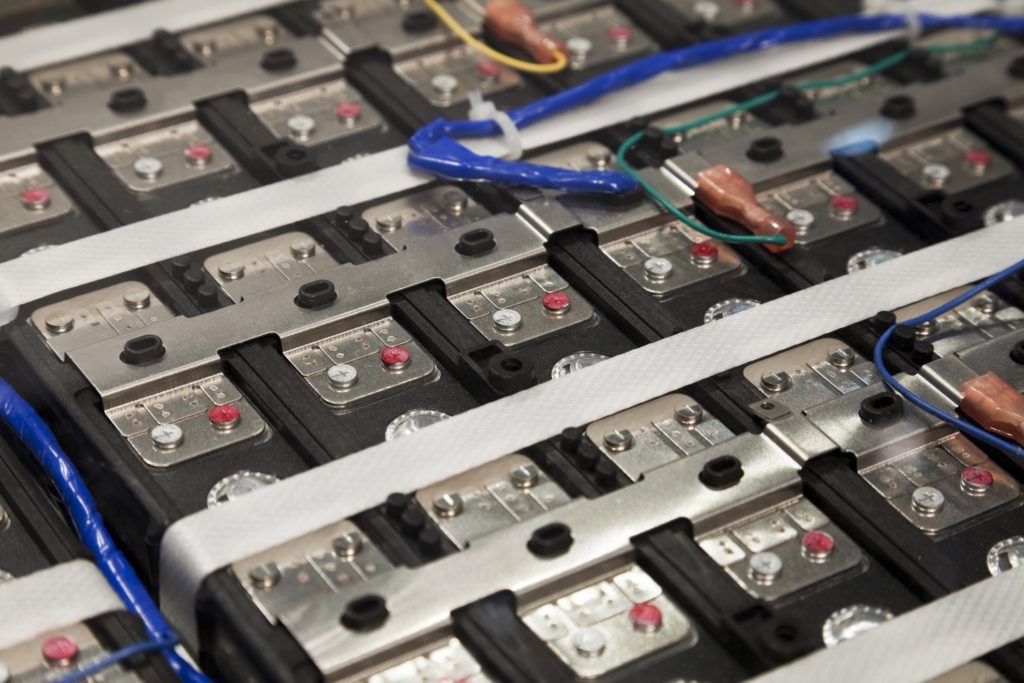Race for battery production heats up
06 October 2020

5 October 2020
Joint ventures and investment rounds indicate an increasing focus to advance battery production capabilities. As environmental regulations, government incentives and increasing demand drive manufacturers away from internal combustion engines (ICE), OEMs are having to invest as much time and money as possible into electromobility.
European manufacturer Northvolt recently announced it raised $600 million (€510 million) to invest in capacity expansion, giga-scale recycling, and research and development (R&D). Meanwhile, FAW and CATL launched a joint venture which will develop, produce and sell lithium-ion batteries. Toyota has also teamed up with Panasonic to build batteries for hybrids.
Capacity
Led by Volkswagen Group (VW), Baillie Gifford and Goldman Sachs Merchant Banking Division, the $600 million private placement will allow Northvolt to continue expanding its production and recycling capabilities as well as its R&D activities.
These funds will boost the manufacturer’s efforts to establish a giga-scale lithium-ion battery recycling plant next to its Ett gigafactory in Skellefteå, Sweden. With an initial capacity of 40-GWh, the facility is slated to become the largest in the world. It will also be the only large-scale facility in Europe capable of recycling lithium, cobalt, nickel, and manganese. Northvolt also plans to develop its R&D labs campus, which is expected to double in size over the coming years, in terms of footprint and investment.
These initiatives will spur the company towards its target of establishing a 25% market share in Europe by 2030. This equates roughly to 150-GWh worth of annual production capacity, with 50% of its raw materials coming from recycled batteries.
′We are in the middle of a race to establish manufacturing capacity in Europe, and I believe the companies that are best at attracting talent and capital, while scaling their blueprints the fastest, will be the most successful,’ said Peter Carlsson, co-founder and CEO of Northvolt. ′With these world-class partners behind us, we have created a solid foundation to go on and execute our plans to enable large-scale manufacturing of green batteries in Europe.’
In this placement, a new group of investors become Northvolt shareholders: Baillie Gifford, Baron Capital Group, Bridford Investments Limited, Norrsken VC & PCS Holding. Private investors Cristina Stenbeck and Daniel Ek also raised equity, together with existing shareholders Goldman Sachs Merchant Banking Division, IMAS Foundation, Scania and VW.
Operations in China
Back in March 2019, FAW and CATL announced they were launching a joint venture. Now some 19 months later, operations are underway, according to reporting by Electrive. Based in Xiapu County of Ningde, Fujian province, the joint venture will develop, produce and sell lithium-ion batteries.
This will include power batteries, energy storage units with ultra-large capacities, and the supply of after-sales services. These batteries could potentially feature in the line-up of electric vehicles (EVs) built on the FAW-Volkswagen MEB platform and Hongqi’s FME platform.
With the FAW-Volkswagen plant in Foshan and the SAIC-Volkswagen plant in Anting operational, VW claims it will have the technical capacity to produce an additional 600,000 pure electric vehicles a year in China.
500,000 vehicles a year
Meanwhile, Toyota and Panasonic announced that from 2022, they will produce lithium-ion batteries for hybrid cars at a plant in Western Japan to meet the increasing demand for EVs. Panasonic’s factory in Tokushima will have enough capacity to build batteries for around 500,000 vehicles a year, said Prime Planet Energy & Solutions, as reported by Reuters.
Plans to establish the joint venture, known as Prime Planet Energy and Solutions, were announced by the two companies in February this year. The partnership is 51% owned by Toyota Motor with Panasonic taking the remaining stake. The products developed by this new company will not be designed exclusively for Toyota vehicles. Instead, the joint venture will supply batteries ′broadly and stably, to all customers.’